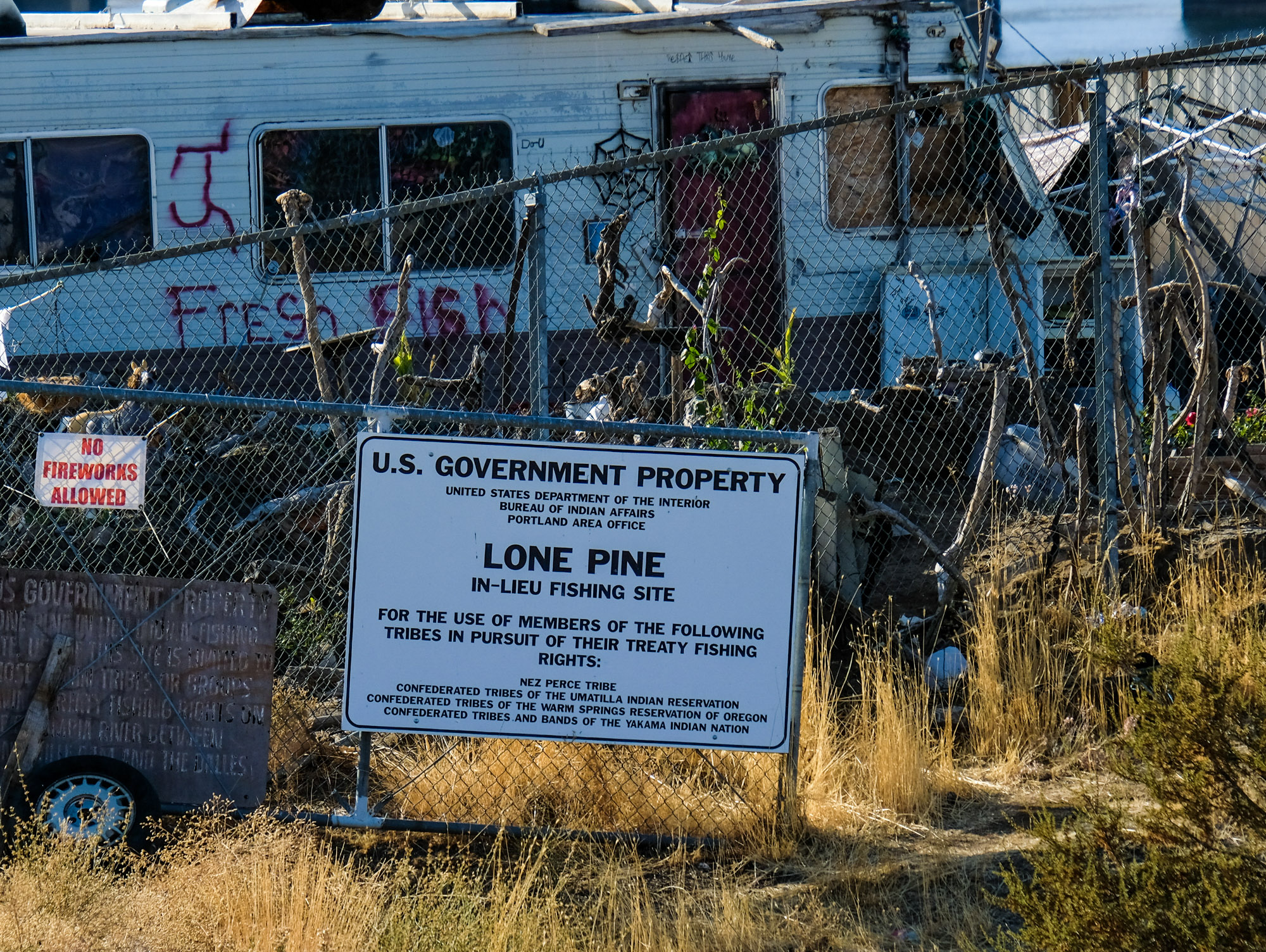Indianz.Com > News > Federal agencies collaborate on effort to protect tribal treaty rights

Interior Department, Federal Partners Commit to Protect Tribal Treaty Rights
Monday, November 15, 2021
Indianz.Com
The following is the text of a November 15, 2021, news release from the Department of the Interior.
WASHINGTON, D.C. — During today’s White House Tribal Nations Summit, President Biden announced that the Department of the Interior and 16 other federal agencies have formally committed to protecting Tribal treaty rights in agency policymaking and regulatory processes.
The Memorandum of Understanding (MOU) affirms the federal government’s commitment to enhancing interagency coordination and collaboration to protect treaty rights and to fully implement federal government treaty obligations. In addition to the Interior Department, the MOU was signed by the Departments of Agriculture, Justice, Defense, Commerce, Education, Energy, Homeland Security, Housing and Urban Development, Labor, State, Transportation, Veterans Affairs and the Environmental Protection Agency, Council on Environmental Quality, Office of Personnel Management, and the Advisory Council on Historic Preservation.
“Tribal Nations entered into treaties, in part, to protect their way of life and inherent rights to natural resources of cultural, economic, and subsistence importance,” said Secretary Deb Haaland. “It is our obligation to honor these treaty rights and incorporate Tribal interests into our decision-making, so that Tribal rights regarding everything from hunting and fishing to health care and education are protected.”
The MOU commits the agencies to working together to consult and coordinate with federally recognized Tribes on:
- Supporting the creation, integration, and use of a searchable and indexed database of all treaties between the United States government and Tribal nations, to facilitate understanding and compliance with our treaty obligations;
- Enhancing the ongoing efforts to integrate consideration of Tribal treaty and reserved rights early into the federal decision-making and regulatory processes to ensure that agency actions are consistent with constitutional, treaty, reserved, and statutory rights;
- Developing, improving, and sharing tools and resources to identify, understand, and analyze Tribal treaty and reserved rights that may be adversely impacted or otherwise affected by agency decision-making, regulatory processes or other actions or inaction.
The Department of the Interior (DOI) conserves and manages the Nation’s natural resources and cultural heritage for the benefit and enjoyment of the American people, provides scientific and other information about natural resources and natural hazards to address societal challenges and create opportunities for the American people, and honors the Nation’s trust responsibilities or special commitments to American Indians, Alaska Natives, and affiliated island communities to help them prosper.
Related Stories
Biden administration launches ‘Tribal Homelands Initiative’ for co-stewardship of federal lands and waters (November 15, 2021)Agenda for Day One of White House Tribal Nations Summit (November 15, 2021)
Biden administration announces Native language initiative (November 15, 2021)
Biden administration seeks to protect sacred areas in New Mexico from development (November 15, 2021)
Center for Western Priorities welcomes protections for sacred areas in New Mexico (November 15, 2021)
White House releases ‘progress report’ for Tribal Nations Summit (November 15, 2021)
White House Fact Sheet: Building A New Era of Nation-to-Nation Engagement (November 15, 2021)
White House Tribal Nations Summit – Day One – November 15, 2021 (November 14, 2021)
White House Tribal Nations Summit – Day Two – November 16, 2021 (November 14, 2021)
President Biden revives White House Tribal Nations Summit (September 22, 2021)
Search
Filed Under
Tags
More Headlines
Cronkite News: Gathering addresses ‘epidemic’ among Native people
VIDEO: Cody Desautel on tribes and federal forest management
AUDIO: Legislative Hearing on Discussion Draft of Forest Management Bill
Native America Calling: Remembering the 1974 Navajo border town murders
Native America Calling: Can the right approach close the Native immunization gap?
Cronkite News: Long COVID cases remain high in Arizona
Native America Calling: Eyes in the sky for development, public safety, and recreation
Native America Calling: Three new films offer diverse views of Native life
NAFOA: 5 Things You Need to Know this Week
Chuck Hoskin: Cherokee Nation works toward cure for arthritis
Native America Calling: Protecting young people from the down sides of social media
Cronkite News: Fake ‘shaman’ among candidates failing to make Congressional ballot
Native America Calling: New Native voices in poetry
Cronkite News: Tribes air concerns about border at hearing in nation’s capital
Native America Calling: Indiginerds descend on Oklahoma City
More Headlines
VIDEO: Cody Desautel on tribes and federal forest management
AUDIO: Legislative Hearing on Discussion Draft of Forest Management Bill
Native America Calling: Remembering the 1974 Navajo border town murders
Native America Calling: Can the right approach close the Native immunization gap?
Cronkite News: Long COVID cases remain high in Arizona
Native America Calling: Eyes in the sky for development, public safety, and recreation
Native America Calling: Three new films offer diverse views of Native life
NAFOA: 5 Things You Need to Know this Week
Chuck Hoskin: Cherokee Nation works toward cure for arthritis
Native America Calling: Protecting young people from the down sides of social media
Cronkite News: Fake ‘shaman’ among candidates failing to make Congressional ballot
Native America Calling: New Native voices in poetry
Cronkite News: Tribes air concerns about border at hearing in nation’s capital
Native America Calling: Indiginerds descend on Oklahoma City
More Headlines